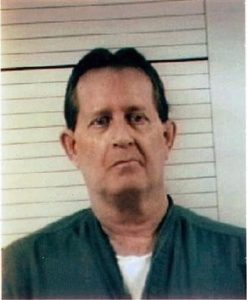- Home
- State Information
- Resources
- CCRI Materials
- Mental Health Fact Sheets
- Autism Spectrum Disorder
- Borderline Intellectual Functioning
- Bipolar Disorder
- Complex Trauma
- Epilepsy
- Executive Function Impairment
- Fetal Alcohol Syndrome Disorders
- Intellectual Disability
- Major Depressive Disorder
- Posttraumatic Stress Disorder
- Schizophrenia
- Specific Learning Disorder
- Substance-Related and Addictive Disorders
- State Information
- Mental Health Fact Sheets
- Browse
- Search
- CCRI Materials
- News & Developments
- Search
- About Us
- Log In
- Register
Colorado

The information on this page provides a brief overview of capital clemency in Colorado and is not intended to serve as the basis for a capital clemency petition or campaign. For additional information, please see the full Colorado Clemency Memo (November 2016) prepared by the ABA Capital Clemency Resource Initiative:
Contents
Colorado Capital Clemency Memo
UPDATE: Colorado Abolishes the Death Penalty; Commutes Remaining Death Sentences
On March 23, 2020 Colorado Governor Jared Polis signed a bill repealing the state’s death penalty. The repeal makes Colorado the 22nd U.S. state to remove the death sentence as an available penalty. Since reinstating the death penalty following the decision in Furman v. Georgia, Colorado has executed just one person, Gary Davis, in 1997. The bill passed the Senate in January 2020 and the House in February 2020. The law, which goes into effect on July 1, does not apply retroactively to prisoners already sentenced to death or to those who were charged with capital offenses prior to the signing. However, the same day the bill was signed, Governor Polis commuted the sentences of the state’s three death row prisoners, Robert Ray, Sir Mario Owens and Nathan Dunlap—a move Governor Polis previously indicated he would likely make. Each prisoner had his sentence commuted from death to life in prison without the possibility of parole. In a statement, Governor Polis said that the commutations were “consistent with the abolition of the death penalty in the State of Colorado, and consistent with the recognition that the death penalty cannot be, and never has been, administered equitably in the State of Colorado.”
Note: The below information and attached memorandum discusses the capital clemency process in Colorado prior to the March 2020 abolition of death as a possible sentence.
The Power Defined
The Constitution of the State of Colorado grants exclusive clemency power to the governor. Article 4, Section 7 states:
The governor shall have power to grant reprieves, commutations and pardons after conviction, for all offenses except treason, and except in case of impeachment, subject to such regulations as may be prescribed by law relative to the manner of applying for pardons, but he shall in every case where he may exercise this power, send to the general assembly at its first session thereafter, a transcript of the petition, all proceedings, and the reasons for his action.
The Colorado Revised Statutes § 16-17-101 further specifies:
The governor is hereby fully authorized, when he deems it proper and advisable and consistent with the public interests and the rights and interests of the condemned, to commute the sentence in any case by reducing the penalty in a capital case to imprisonment for life or for a term of not less than twenty years at hard labor.
The Decision Maker(s)
The governor holds sole authority to grant clemency in capital cases. The Executive Clemency Advisory Board (“Board”), which was reauthorized by executive order in 2012, is empowered to make advisory clemency recommendations to the governor. According to the new authorization order, if a recommendation for clemency receives favorable votes from at least four Board members, the recommendation proceeds to the governor. The relationship between the Board and the Governor has not yet been tested in practice. Colorado currently only has three individuals on death row, and is in a state of governor-imposed moratorium. The last clemency request processed by the governor (which resulted in an indefinite reprieve and de facto moratorium) was considered before the current Board was functional and staffed. As a result, research indicates that there have been no capital clemency requests made through the Board or to the governor since this new process was put into place, and it is therefore difficult to describe what exactly the relationship between the entities is/will be in the future.
While the order reauthorizing the Board to consider clemency requests does not specifically mention capital cases, it does state that the Board is empowered to consider clemency requests for all offenses, “except treason and impeachment.” Under the order, the Board consists of seven members appointed by the governor. Initial appointments to the Board served three- and two-year terms, and all members thereafter will serve three-year terms. No member can serve more than two terms. Board members include, but are not limited to:
- The Executive Director of the Department of Corrections;
- The Executive Director of the Department of Public Safety;
- At least one member who is a crime victim or represents victims of crime.
A January 2015 Denver Post article noted that the Board has rarely (if ever) met in person. Despite having been created in 2012, the Board sat vacant until 2015. According to that article, there was already a 150-case backlog of pardon and commutation applications for review by the time the Board appointments were filled. Since that time, no articles or known government publications discuss whether the Board has been actively reviewing applications since it has been fully staffed, or whether any clemency decisions have yet been rendered.
How Petitions are Brought
Petitions for clemency and all supporting documentation, including the standardized clemency application, may be submitted to the Director of Executive Clemency.
All applications for commutation of sentence must be accompanied by a certificate from the superintendent of the petitioner’s correctional facility, detailing the applicant’s conduct during his or her confinement in the correctional facility, along with any evidence of former good character.
Any application must first be submitted to the present district attorney of the district in which the petitioner was convicted, to the judge who sentenced the case, and to the attorney who prosecuted at trial, soliciting comments concerning the merits of the application. The governor must make good-faith efforts to locate these parties and give them at least 14 days for comments. The requirements are met if, upon being contacted, the parties do not comment within 14 days. The governor can then exercise his or her sole discretion in evaluating the application and in soliciting other comments as needed.
Hearing Practice
Once a petition has been filed, the process is less straightforward. The governor and the Board may solicit further comments and hold hearings as they see fit, but there is no standard process for holding a hearing to consider a clemency request provided in either the Colorado Revised Statutes or the 2012 executive order reauthorizing the Board.
Responding to a Petition
Colorado law does not require that the Board or governor respond to a capital clemency petition once it has been filed. Upon deciding to grant clemency, however, the governor must present a transcript of the petition, all proceedings, and the reasons for his or her action to the General Assembly at their next session. There is no similar notice requirement in cases where the governor denies clemency.
Current Clemency Decision Maker(s)
The Governor

The current Governor of Colorado is Democrat Jared Polis, who was elected in 2019 as the nation’s first openly gay governor. Governor Polis received his Bachelor’s Degree from Princeton University in 1996. His political career began in 2000, when he first became a member of the Colorado State Board of Education. In 2009, Governor Polis was elected to Congress, where he served until being elected governor in 2019. According to his gubernatorial website, his key issues include the environment, ensuring all Coloradans have access to affordable, quality healthcare, and providing every child with a quality education.
During his campaign, Governor Polis stated that he would sign a bill to repeal the death penalty in Colorado, calling it outdated, ineffective, and costly. In regards to clemency, Polis said, “If the state, Republicans and Democrats, were to say, and I were to sign, a bill that said we no longer have the death penalty in Colorado . . . I would certainly take that as a strong indication that those who are currently on death row should have their sentences commuted to life in prison.”
There are currently on 3 people on death row in Colorado, all 3 of whom are African Americans. On March 4, 2019, Colorado Democrats introduced Senate Bill 19-182 to repeal the death penalty in the state. Governor Polis has stated that he would sign the measure. If passed, this bill would not impact the sentences of the three men currently on death row. That decision will be left to Governor Polis.
The Executive Clemency Advisory Board
(As of the date this page was last updated, we have been unable to find new information about the Executive Clemency Advisory Board under Governor Polis).
Governor Hickenlooper appointed the following people to the Board in January 2015: Kelly Marie Kissell (reappointed in December 2016, new term expires 2020); Dianne Louise Tramutola-Lawson (reappointed in December 2016, new term expires 2020); Pax Leia Moultrie (term expires 2018); Richard M. Swanson (term expires 2018); Alberto M. Dominguez (term expires 2018); Stanley A. Hilkey (term unknown); and Richard F. Raemisch (term unknown).
Significant Past Capital Clemency Decisions
Grants
Governor Hickenlooper’s May 2013 decision to grant a reprieve to death row prisoner Nathan Dunlap stands alone as the only major act of capital clemency in Colorado over the last 40 years. This reprieve is merely a temporary delay that can be reversed by a future governor if he or she chooses.
Hickenlooper said that his decision to stay Dunlap’s execution was made “not out of compassion or sympathy,” but because there “is a legitimate question whether we as a state should be taking lives.” In his executive order advising the public of his decision, the Governor wrote, “Colorado’s system for capital punishment is not flawless.”
The decision prompted backlash, including from one of the victim’s fathers, who said, “He took the coward’s way out at the expense of my daughter… He’s a coward who doesn’t deserve to be in office. If you can do anything Coloradans, get this guy out of here before he screws everything up.” In addition, Governor Hickenlooper received criticism from Republicans, Democrats, the Colorado Fraternal Order of Police, the district attorney, and the attorney general for what they saw as a failure to make a firm decision for death or clemency. In a CNN interview, the Governor hinted that if he lost the 2014 election, he wouldn’t rule out commuting Dunlap’s sentence. As a result, his political opponent in the election, Republican Bob Beauprez, attacked what he considered evidence of Hickenlooper’s weak leadership and inability to uphold the law. Despite this controversy, Hickenlooper was reelected to a second term as Colorado Governor in November 2014.
Current Governor Jared Polis has yet to make a decision on whether the reprieve will be lifted or whether he will commute Mr. Dunlap’s sentence.

Denials (where newsworthy or controversial)
Former Colorado Governor Roy Romer denied clemency to Gary Lee Davis, who was executed in 1997. In 1986, Davis and a co-conspirator kidnapped their female neighbor in front of her children. They drove her to a deserted field where Davis raped and shot her 14 times with a rifle. Davis was charged and sentenced to die in 1987. At trial, evidence emerged that he was sexually abused as a child and had a history of predatory sexual behavior. Governor Romer denied Davis clemency because he didn’t think that the rehabilitation he had undergone warranted an “extraordinary event” worthy of clemency.
Colorado Resources
Click here to view Colorado resources for download, including clemency petitions and other relevant practice materials. Please note that not all of the content will be visible to users who are not currently logged in or do not otherwise have practitioner-access to the website.
Page last updated on March 31, 2020
